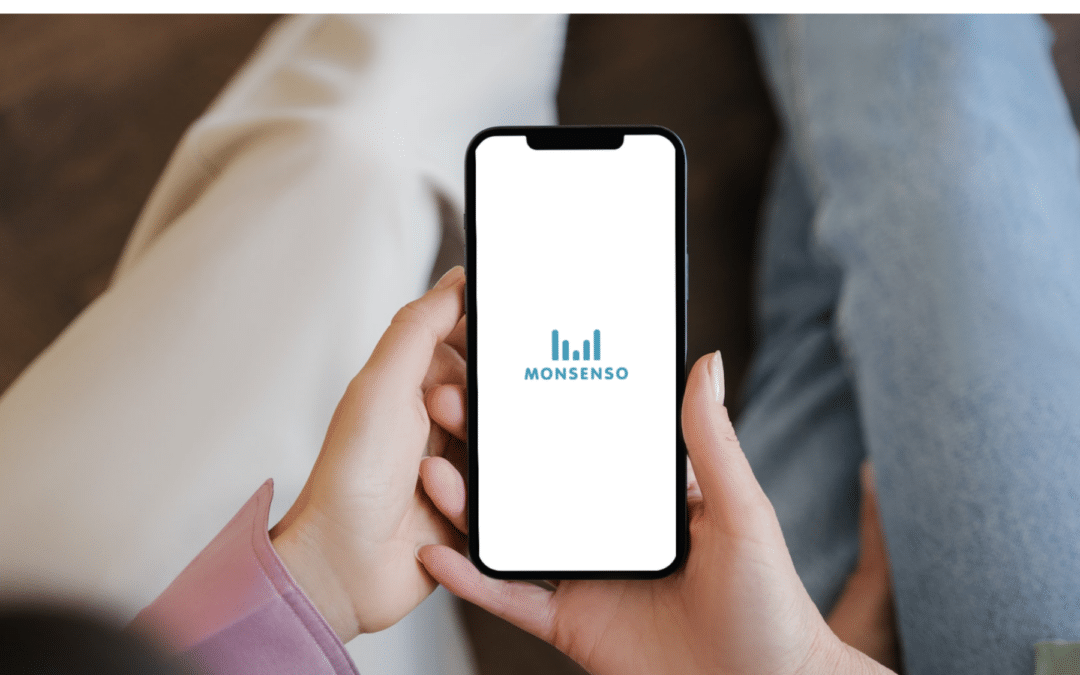
Mental health app could help prevent depression in young people at high risk
A cognitive behavioural therapy (CBT) app, based on Monsenso’s digital health platform, has been found to significantly prevent increases in depression in young people who are at high risk – and could be implemented as a cost- effective, large-scale public mental health measure.
Globally, concern is growing about the high and steadily increasing rates of anxiety and depression in young people. Effective and scalable ways of preventing poor mental health in this group are needed, and digital tools such as mobile apps have been proposed as part of the solution.
Whilst there is emerging evidence for mental health apps being effective in treating anxiety and depression, the EcoWeB project led by the University of Exeter is the first to rigorously test a mental health app on such a large scale across four countries. Two linked papers published on Oct 4 in Lancet Digital Health report the results of the ECoWeB-PREVENT and ECoWeB-PROMOTE trials, which ran concurrently in the four-year study funded by Horizon 2020. Critically, these studies found that a CBT self-help app based on Monsenso’s digital health platform can protect vulnerable young people against depression.
Professor Ed Watkins from the University of Exeter led the project and said: “For young people with elevated risk, our findings suggest the CBT app does have a preventative effect on depression and could have a public health benefit. Participants’ quality-of-life measures were better, and their reported work and social functioning was better.
“However, we also found that it’s hard to make improvements in young people who are basically doing okay. Our findings add to the evidence that prevention for depression works best when we identify and select individuals who are more at risk, rather than take a more universal approach. This identification could be done by an online self-screening process or through professional referral.”
CEO Thomas Lethenborg at Monsenso said: “We are happy with the outcomes of this study and see great potential for our platform based on this. It shows that our platform can be used to deliver cost-effective guidance and interventions at scale and that it can be used to enable large-scale, international decentralised trials collecting continuous real-world data from participants.”
The aim of the EUR 4-million project was to test the effects of mobile apps in preventing depression and promoting mental well-being for young people aged 16 to 22. In one of the largest studies of its kind, 3,700 young people took part across the UK, Germany, Belgium, and Spain and were allocated into two trials based on their emotional competence abilities at the start of the study. That resulted in 1,200 young people with reduced emotional competency scores that confer increased risk for depression such as increased worry and overthinking going into one trial focused on prevention, whilst 2,500 without such risk went into the other trial focused on wellbeing promotion.
Those two groups were then randomised in equal numbers to three different apps developed by the project based on Monsenso’s platform. There was a self-monitoring app where people can report their emotions every day, a self-help app that provided personalised training in emotional competence skills, and a self-help app based on CBT principles. Participants were then followed up at three months and 12 months to see how their wellbeing and depression symptoms changed.
The trials found the CBT app prevented an increase in depression, relative to self-monitoring in the higher risk sample, but that there was no difference between any of the interventions in their effects for the lower risk sample.
Professor Ed Watkins at University of Exeter said: “Our results suggest that even when young people used the self-help app just a few times, there was a small but meaningful benefit. Because the app is scalable to large numbers of people in a cost-effective way, these effects have potential value as a public health intervention, within a broader portfolio of digital and in-person services and interventions. Next steps are to identify the active ingredients of the app that were beneficial and to improve engagement and ongoing use of these elements.”
The project involved 13 different partners, including two commercial companies – digital health platform provider Monsenso and German voice analysis company audEERING. The University of Exeter (UK), LMU Munich (Germany), Ghent University (Belgium), and Universitat Jaume I (Spain), were the main treatment development and trial sites. Meanwhile, the University of Oxford led on the qualitative analysis.
The studies are titled ‘Emotional competence self-help app versus cognitive-behavioural self-help app versus self-monitoring app to prevent depression in young adults with elevated risk (ECoWeB PREVENT): an international, multicentre, parallel, open-label, randomised controlled trial‘ and ‘Emotional competence self-help mobile phone app versus cognitive behavioural self-help app versus self-monitoring app to promote mental wellbeing in healthy young adults (ECoWeB PROMOTE): an international, multicentre, parallel, open-label, randomised controlled trial’, and both are published in Lancet Digital Health. This work was supported by European Union Horizon 2020 Personalised Medicine SC1-PM-07–2017 grant agreement 754657.
Click the button below for more information about the Monsenso solution.




